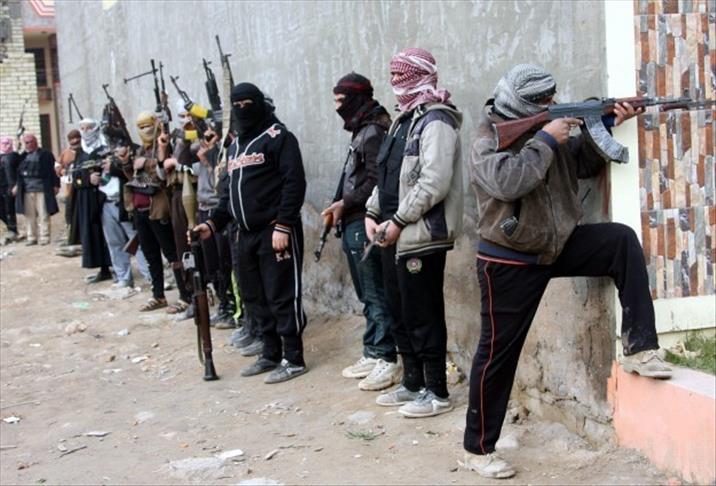Conflict among rebel groups strengthens Syrian regime's hand
Syrian opposition blames Islamic State in Iraq and Levant for violence against Syrian civilians, weakening fight against Assad.

ANKARA
By Turgut Alp Boyraz, Baris Saglam, M. Bilal Kenasari
Clashes between the Islamic State in Iraq and Levant (ISIL) and other Syrian opposition groups are playing into the hands of the Assad regime, according to various sources familiar with the situation.
Earlier this month, the most serious clashes yet between ISIL and the Syrian Islamic Front - one of the biggest armed groups fighting inside Syria - erupted in northern Syria. Iraqi government forces and tribal groups have also been fighting against ISIL in Iraq’s Anbar province since January.
Syrian opposition activists have blamed ISIL for escalating violence against Syrian rebels and civilians, including kidnappings and public executions of fighters and civilians in Syria.
The Chairman of the Syrian National Coalition, Ahmed Jabra, accused ISIL on Thursday of being close to the Assad regime.
"The Free Syrian Army (FSA) started a war against this terrorist group a month ago and at the same time when FSA was fighting with the ISIL, the Assad regime only bombed the FSA," Jabra said during the Geneva II peace meetings. "Assad forces have never bombed the ISIL."
Muhammed Hilmi Ozev, a Middle East expert at the Turkish Asian Center for Strategic Studies (TASAM), told Anadolu Agency (AA) that ISIL’s operations in Syria are clearly playing into the hands of the Assad regime and its supporters.
“In that point, the goal of ISIL’s operations become less important than what consequence they really have in the field,” said Ozev.
Oytun Orhan, another Middle East expert at the Center for Middle Eastern Strategic Studies (ORSAM) stresses that "ISIL mostly clashes with other opposition groups in Syria, instead of focusing on the fight against the Assad regime, and Assad forces rarely attack on ISIL bases."
Orhan said: “This doesn’t necessarily mean that ISIL deliberately helps out the Assad regime, but the consequence of their actions weakens the Syrian opposition.”
A Syrian refugee living in Turkey's capital Ankara, who uses the alias Souleyman Khalid and worked for Syrian state television for over 30 years, says ISIL is being manipulated by Syrian intelligence, with the help of their Iraqi counterparts.
Khalid says Ali Mamlouk, a special security adviser to Bashar al-Assad and head of the Ba'ath Party's National Security Bureau, acts as a middleman between the two intelligence agencies.
In 2011, the European Union blacklisted Mamlouk for violence against demonstrators during the early stages of the Syrian uprising.
Fighters from around the world flooded into Syria after the civil war erupted in March 2011. Now they are operating under the flags of existing Syrian opposition groups, or groups they formed themselves, to contribute to the fight against Syrian President Bashar Al-Assad.
There are two groups, Al-Nusra Front and ISIL, that are said to have links with al-Qaeda. Al-Nusra Front is a predominantly homegrown group fighting against the Syrian regime, whereas ISIL mostly consists of foreign fighters operating both in Iraq and Syria.
In November 2013, Al-Qaeda chief Ayman al-Zawahiri ordered the disbanding of ISIL in Syria, stressing that the Al-Nusra Front was the branch of the global jihadi group in Syria. However, ISIL still continues to operate in both countries.
In an attempt to block the progress of ISIL, Islamist opposition groups have formed a coalition group called the Islamic Front. The front is a merger of seven rebel groups from different parts of Syria, including some units of the Al-Nusra Front.
englishnews@aa.com.tr
Anadolu Agency website contains only a portion of the news stories offered to subscribers in the AA News Broadcasting System (HAS), and in summarized form. Please contact us for subscription options.

